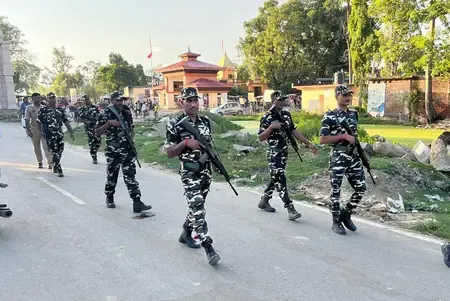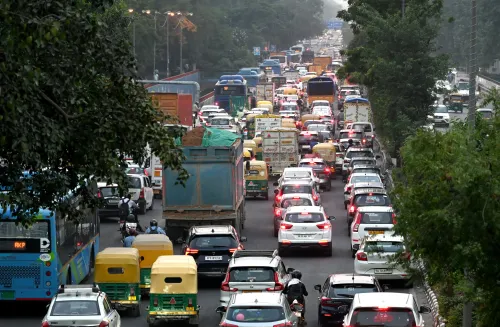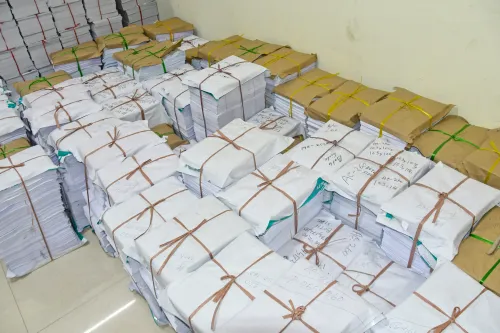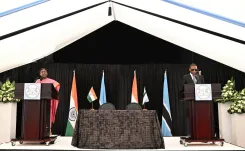Is the Nepal Border Under Tight Surveillance Due to Delhi Blast Suspects?

Synopsis
Key Takeaways
- Increased surveillance at the Nepal border to prevent suspects from escaping.
- A comprehensive investigation into the Delhi blasts is underway.
- Close ties between local groups and international terror organizations.
- Heightened security measures in Jammu and Kashmir.
- Ongoing raids targeting overground operatives linked to terror factions.
New Delhi, Nov 12 (NationPress) Security forces have initiated a comprehensive manhunt across the nation to locate individuals linked to the Delhi bombings, with a particular focus on the Nepal border. According to intelligence reports, the suspects may try to escape India via this vulnerable border.
Authorities indicate that the alleged perpetrators might seek to leave India through Nepal before proceeding to Pakistan. This route was historically utilized by operatives of the Indian Mujahideen when the group was active.
At present, it's uncertain how many individuals were involved in the bombings. Those detained during the Faridabad module crackdown are being interrogated for further insights. While they have not disclosed significant information yet, the agencies are optimistic that they eventually will.
Residents near the Nepal border have been instructed to promptly report any suspicious behavior. An official noted that the suspects will do everything possible to exit India. Increased border checks are in effect, and all movements are being meticulously monitored.
Additionally, operations have commenced in Shopian, Jammu and Kashmir, targeting overground operatives assisting in the resurgence of terror factions. The Faridabad module was allegedly under the influence of Jaish-e-Mohammad, with considerable support from Jammu and Kashmir.
Notably, a Maulvi Irfan Ahmed is believed to have spearheaded a radicalization initiative, recruiting many individuals into the module. Intelligence agencies assert that the Delhi blast is directly connected to the Faridabad module.
This indicates a notable shift in terror-related activities, with the focus once again on the heartland. Jaish-e-Mohammad has deliberately shifted its operations due to challenges in Jammu and Kashmir.
Following the Pahalgam incident, security levels in Jammu and Kashmir are exceptionally high, complicating operations for terror groups. The raids in Jammu and Kashmir are also targeting the residences of Jamaat-e-Islami members.
Information regarding potential suspects and their handlers is being relayed to authorities by Ahmed. Jamaat members are under scrutiny for their known affiliations with Pakistan-based terror organizations. The outfit gained momentum in Bangladesh post the ousting of Sheikh Hasina, leading to closer ties with the ISI aimed at reviving terror factions against India.
Currently, multiple agencies are collaborating on this case. Due to the incident's scale, the investigation's scope has expanded beyond the blast itself. Authorities are pursuing a vast module intended to execute a series of bombings across the country.
The significant quantity of explosive materials seized from module members underscores the magnitude of their planned attacks.
Meanwhile, a team from the FSL has revisited the blast site to gather further evidence. They collected two cartridges, including one live round, and samples of two distinct explosives. In total, 40 samples from the blast site are undergoing examination.









